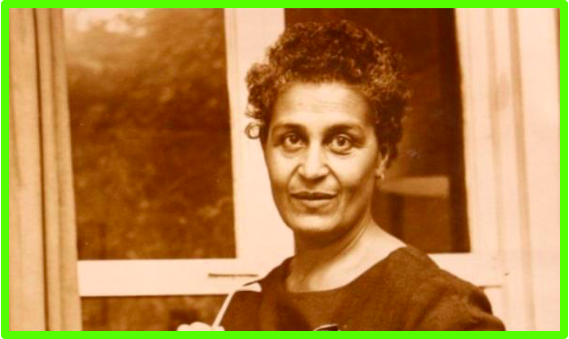✏️ Rachel Thacker
Why break the glass ceiling in one industry, when you have the ability to crash the barriers of more? Pauline Henriques was influential not only in performing arts, but also within social work and the magistrates courts.
Upbringing
Born in Jamaica in 1914, Pauline spent her early life in Kingston before moving to London when she was five. Her family were fortunate enough to be fairly wealthy as her father worked as a successful merchant. He knew that with the world they were living, if he wanted his children to have the best chance of success, then they required an English education.
The cultural capital that Pauline learnt from her parents and siblings at a young age would prove significant in the road to her later success as a black woman. Often as a family, the Henriques’ would read through plays at home and encouraged creative discussion; most of the plays were British classics with characters that rarely represented Pauline.
The London Academy of Music and Dramatic Arts
When Pauline was 18 she enrolled into the London Academy of Music and Dramatic Arts to study drama. This was during a time where it was viewed as totally appropriate for actors to try change their ethnic appearances for roles.
Pauline wanted to be noticed as a serious and talented actress, appearing in school productions as leading female characters like Lady Macbeth and Lady Bracknell. Still, to do these roles she had to ‘white up’.
She had grown tired of playing the comedic black maid in plays with only one line and exaggerated Jamacian accents. Presuming that in order to be casted in a range of roles, that she would have to try to disguise her ethnicity.
The BBC
After graduating 1933, Pauline struggled to find acting work. It wasn’t until 1943 during the second world war when the BBC decided to start a radio series for their West Indian Service. ‘Caribbean Voices’ ran for a total of 15 years and gave Caribbean writers and actors a platform (although small) to showcase their talents and work.
Her most groundbreaking role came in 1946, when Pauline became the first black actress to appear on British TV. Casted as Hattie Harris in Eugene O’Neill’s controversial All God’s Chillun’ Got Wings. The plot covered the tensions between races but also within races, and was different to anything the BBC had produced before.
Nonetheless, roles were still extremely rare for black people, often competing against established white actors who would black face. As as way to put the interest of black actors at the forefront, Pauline helped to organise the Negro Theatre Company, producing and performing their own productions.
Career U-Turn
Although relatively successful for a black actress at the time, the lack of diversity in the industry eventually drove Pauline onto a new career in social work.
For the next 40 years she worked with adolescents especially those who felt isolated and marginalised. More specifically, she worked with young pregnant women being part of the National Council for the Unmarried Mother and Her Child.
Having a child outside of marriage was still frowned upon and frequently young girls would be outcast by their family. Pauline worked to ensure that these young girls received the same respect as the fellow mothers-to-be received.
When Pauline started working at Brook Advisory Centre in 1971, her work centred more on the counselling aspect of her job. Abortions were legalised in 1969, but at first the attitude was still ‘don’t ask don’t tell’. Pauline supported women’s choice to have an abortion, however felt everyone should recieve counselling before and after to procedure, to support women mentally through a uniquely personal experience. Especially for girls under the age of 16, to try find out if any form of abuse was reason to why they required an abortion.
Some people may say that the two careers Pauline worked in were unrelated, Nonetheless, I don’t feel that it’s unusual or that far apart. Through her career as an actress, Pauline continually struggled to have her voice be noticed or heard. Her later career in social work meant that she was actively providing a means for the marginalised and voiceless to feel listened to.
Legacy
To further add to her list of ‘firsts’, in 1966 she became Britain’s first black woman magistrate and also was awarded an OBE in 1969.
Pauline never stopped doing all she could to see the progression of those who have faced struggles. In a interview she said “Any woman who is a first in a field previously dominated by men has the responsibility of opening doors for other women”.
Thanks for reading our article! We know young people’s opinions matter and really appreciate everyone who reads us.
Give us a follow on Instagram, Twitter and Facebook to stay up to date with what young people think.

